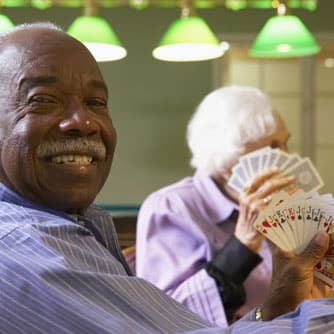In that social engagement has been generally recognized as an essential anti-aging principle, Rush University Medical Center (Illinois, USA) researchers report that higher levels of social activity are associated with a decreased risk of becoming disabled. Bryan James and colleagues studied 954 older adults, average age 82 years, enrolled in the Rush Memory and Aging Project. At the study’s start, none of the participants had any form of disability; in subsequent years, each subject underwent yearly evaluations that included a medical history and neurological and neuropsychological tests. Social activity was measured based on a questionnaire that assessed whether, and how often, participants went to restaurants, sporting events or the teletract (off-track betting) or played bingo; went on day trips or overnight trips; did volunteer work; visited relatives or friends; participated in charitable groups ; or attended religious services. To assess disability, participants were asked whether they could perform six activities of daily living without help ( feeding, bathing, dressing, toileting, transferring and walking across a small room); they were also asked whether they could perform three tasks that require mobility and strength; and they were asked about their ability to perform what are referred to as “instrumental” activities of daily living (household management and mobility tasks, such as using the telephone, preparing meals and managing medications). The team observed a person who reported a high level of social activity was about twice as likely to remain free of a disability involving activities of daily living, as compared to a person with a low level of social activity. Further, those with high social activity were about 1.5 times as likely to remain free of disability involving instrumental activities of daily living or mobility. The researchers conclude that: “Social activity is associated with a decreased risk of incident disability in activities of daily living, mobility, and instrumental activities of daily living, among community-dwelling older adults.”
Social Engagement A Key Anti-Aging Principle
Bryan D. James, Patricia A. Boyle, Aron S. Buchman, David A. Bennett. “Relation of Late-Life Social Activity With Incident Disability Among Community-Dwelling Older Adults.” J Gerontol A Biol Sci Med Sci, February 7, 2011.




